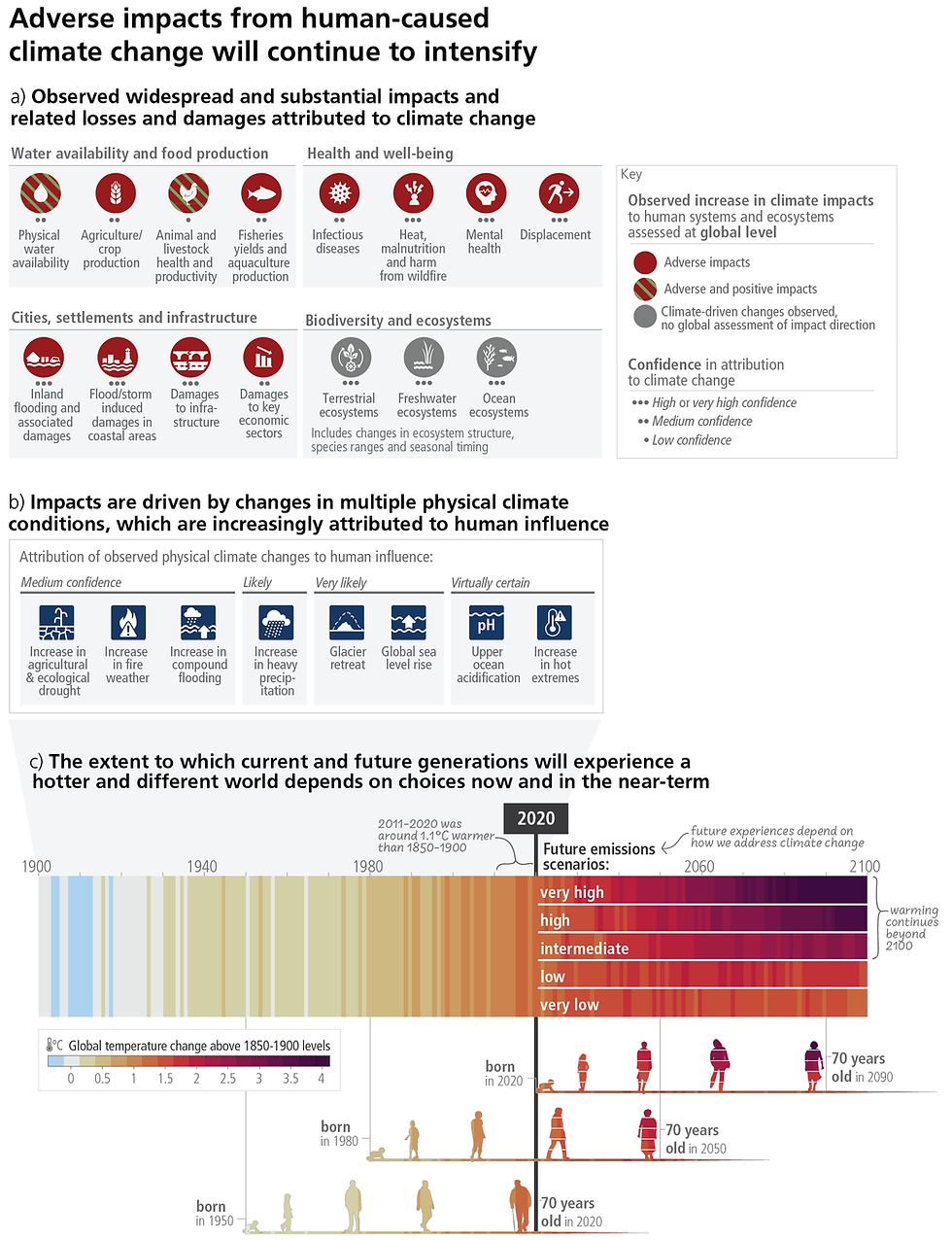Current climate trajectory would be catastrophic but immediate action could mitigate damage states IPCC’s 6th Synthesis Report
Drawing on the conclusions of the past three working groups assessment reports and three special reports, the IPCC AR6 Synthesis Report: Climate Change 2023, makes an urgent call to policymakers for global action on the climate. The findings show that the climate dilemma has become more challenging due to the insufficient “pace and scale” of ongoing efforts.

The science behind it is not new, but the message is more alarming than ever: Without rapid and upscaled action, “adverse impacts from human-caused change will intensify” across the following sectors: water scarcity and food production; health and wellbeing; cities, settlements and infrastructure; biodiversity and ecosystems.
The report acts as a “final warning” from top climate scientists before the IPCC’s next major cycle assessment in 2030, underlining that the choices made during this decade could be a deciding factor in what current and future generations will face in the near future.
Different pathways, different futures
Overshooting the 1.5°C target is already deemed to be highly likely, and some of the damage is irreversible. All hope is not lost, however. If rapid and large-scale action is taken, it is possible to stay below 1.5°C, or at least limit global warming to 2.0°C. Various graphics in the report, such as the one shown here, demonstrate the different pathways available based on choices made. At such a crossroad, every temperature increment matters and could mean the difference between a catastrophic future or a different, yet manageable future. The choice, the IPCC emphasizes, is up to us.

What kind of action is needed?
The IPCC emphasizes the need to cut global emissions in half and throughout its reports, it points to many various methods and technologies that various sectors can apply to do so.
The report also points to the urgency for climate finance to increase by around 3-6x and directed toward investments in renewable energies, climate technologies, and climate resilient development, among others.
In addition to this, equity and fairness were underscored. Although they historically contributed the least to climate change, poorer countries and vulnerable communities will face the brunt of the effects of climate change. Support for these communities is also urgently needed.
The report also underscores the additional benefits of rapid climate action beyond limiting global warming. By quickly integrating adaptation and mitigation measures, we could not only help the climate, but also see benefits to peoples’ health and livelihoods, the reduction of poverty and hunger, and cleaner energy, water, and air.
What Companies Can Do
The decarbonization of the economy is an essential prerequisite for the rapid implementation of the necessary emission reductions. While the IPCC Synthesis report is targeted at policymakers, the private sector can still learn much from its findings, and it is not necessary to wait for policy to take immediate climate action. For companies that would like to create or review their climate strategy, the First Climate team is available as a point of contact. Our team of experts can advise on the development and implementation of short- and long-term emission reduction strategies.
Contact us: info@firstclimate.com.
You can read the full IPPC AR6 synthesis report here. More on this topic can be found in our article on the IPCC Working Group III report: read “Now or Never” here and in our article on the IPCC Working Group II Report: IPCC Sheds Light on Impacts of Climate Change on People and Ecosystems
About the IPCC
The Intergovernmental Panel on Climate Change (IPCC) is the United Nations body for assessing the science related to climate change. It was established by the United Nations Environmental Programme (UNEP) and the World Meteorological Organization (WMO) in 1988 to provide political leaders with periodic scientific assessments about climate change. The IPCC has 195 member states that are members of the UN or WMO.



